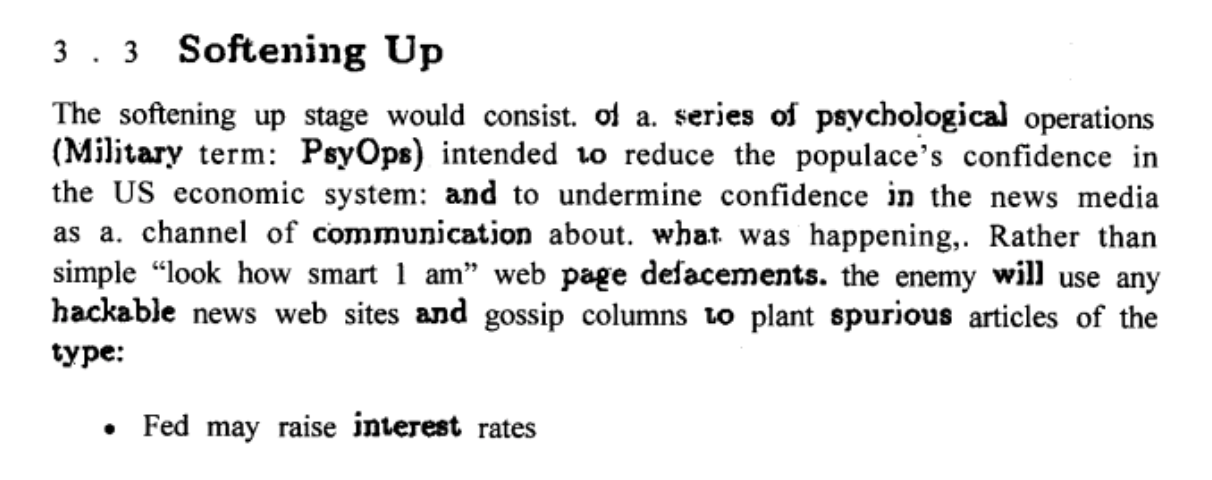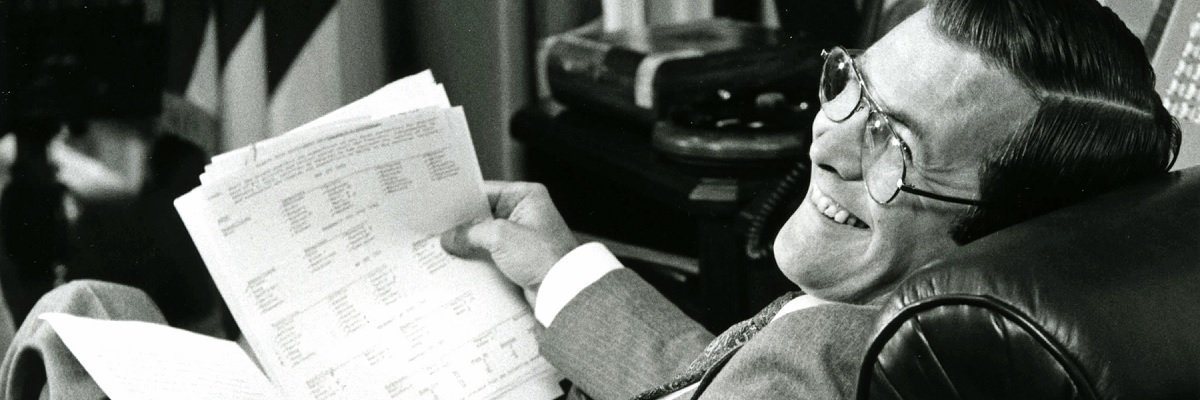This week, see how FOIA has helped open a secretive EPA, what you helped uncover in Rumsfeld’s memos, and which agencies made the worst of the worst - plus how you can win free MuckRock requests and swag!
Join us at the next FOIA Friday!
See a great use of public records we missed? Send over your favorite FOIA stories via email, on Twitter, or on Facebook, and maybe we’ll include them in the next roundup. And if you’d like even more inspiration, read past round ups.
FOIA requests open up EPA
The Sierra Club and others have been using the Freedom of Information Act to open up a resistant EPA. Recently, the Sierra Club publicly posted 24,000 pages of FOIA’d emails and other documents involving agency head Scott Pruitt, who had recently been involved in a number of public scandals.
More than 10K emails released to @SierraClub show EPA’s Scott Pruittt is obsessed with protecting the environment. His own.
— Lisa Friedman (@LFFriedman) May 7, 2018
Smoke and Mirrors’: Emails Detail Pruitt’s Drive for Secrecy at the E.P.A. https://t.co/WvsowyEVYW
The New York Times has used those documents and other Freedom of Information Act request responses to power a lot of its reporting:
- New Files Shed Light on the Day Guards Smashed Scott Pruitt’s Door
- How Pruitt’s Aides Work to Shield the Boss: Seven Quotes
- E.P.A. Emails Show an Effort to Shield Pruitt From Public Scrutiny
- Ex-Lobbyist for Foreign Governments Helped Plan Pruitt Trip to Australia
- A Lobbyist Helped Scott Pruitt Plan a Morocco Trip. Then Morocco Hired the Lobbyist.
Finalists announced for IRE’s 2018 Golden Padlock Award
Every year, Investigative Reporters and Editors sorts through submissions from all around the country to find the worst-of-the-worst when it comes to transparency, ultimately awarding the infamous “Golden Padlock” to the agency a panel of judges deems went above and beyond in denying the public its right to know.
This year, I was honored to serve as a judge, and IRE has now announced the finalists:
“Politicians and civil servants committed to undermining the public’s right to know are a special breed,” said Robert Cribb, chair of IRE’s Golden Padlock committee. “Perfecting the art of government secrecy requires ingenuity, courage and advanced techniques as illustrated by the finalists for this year’s Golden Padlock Award. Their inspirational creativity includes destroying government documents, creating false invoices, ordering bureaucrats to breach information laws and accidentally dropping cell phones containing sensitive government business into the ocean.”
“These nominees give us reassurance that there is no shortage of public officials across America anxious to shield us from unpleasant truths of vital public importance.”
Beyond the agencies that have stonewalled, however, I’d also like to highlight how hard many news organizations, often working with few resources, continue to fight for the right to know. While these examples of agency intransigence are frustrating, the continued fight on behalf of the public on so many issues is fantastic to see. Read those stories here.
The ultimate winners will be announced at IRE’s annual conference this June. If you happen to be there, we’ll be giving demos of MuckRock’s new features as well as our new crowdsourcing platform, Assignments, with a number of MuckRock staffers attending this year to chat FOIA and transparency.
See what was found while digging through #RummysSnowflakes
In January, thanks to a five-year fight by the National Security Archive, the Pentagon began releasing massive troves of former Secretary of Defense Donald Rumsfeld’s memos. Last week, we announced a contest to encourage people to help us go through them, and the response has been tremendous.
89 participants helped submit a grand total of 1,092 submissions, meaning we’re almost halfway to having each page reviewed by two different people.
Every volunteer who contributed at least five submissions in the last week has had a free MuckRock request added to their account, and we’ve also picked this week’s winner for the most interesting find!
Congratulations to user Taylor Sampson, who dug up this bit that presaged our national discussion about #FakeNews while evaluating ways that enemies could use the internet to attack American interests:

And congratulations to user I7f9, who leads the pack in most submissions for #RummysSnowflakes with 100 submissions! We had four users with over 50 submissions, and there’s plenty of time for any eager transparency buffs to catch up. A reminder that the person who submits the most entries over the course of the four-week content will be given 25 free requests plus an extra special MuckRock Swag Pack, sent anywhere in the United States.
Some random stats pulled from the submissions so far:
- 27 percent of Snowflakes had handwriting on them.
- Volunteers thought about 13 percent of the pages were “newsworthy.”
- The mean average of submissions per volunteer was 12.1 and the media average was 4.
Download and analyze all the submissions so far here, and help us continue to expand the data set by helping crowdsource the rest of the information! Three weeks left until the ultimate winner is announced, with other winners picked each week who find the most interesting documents. You can get free stickers, a magical unredacting mug, and more items from the MuckRock Swag Store.
Seen a great FOIA-based news story we should highlight? Let us know and maybe we can include it in our next roundup! Send it over via email, on Twitter, or on Facebook.
Image via Defense.gov




